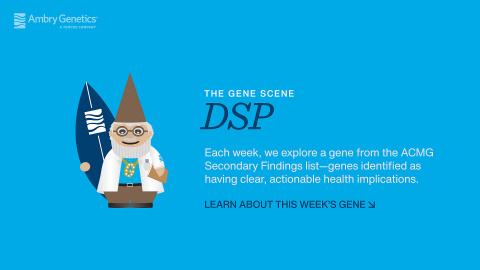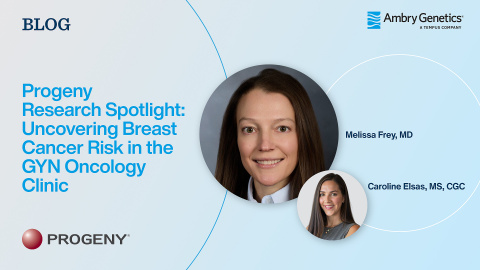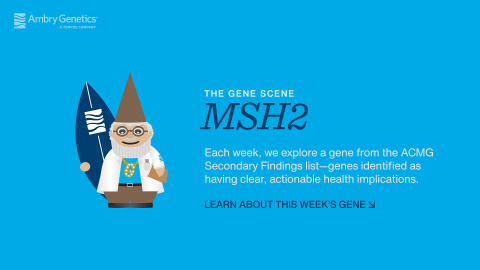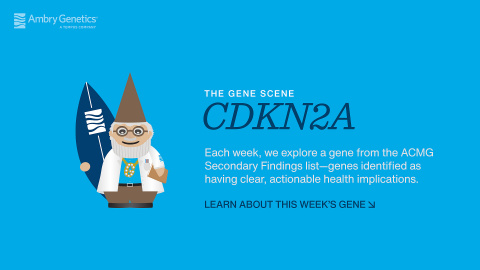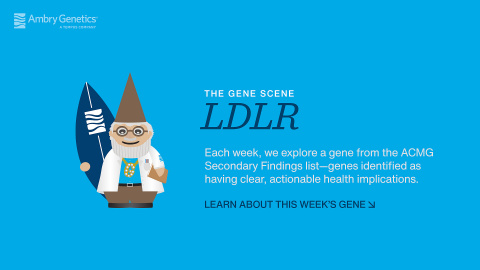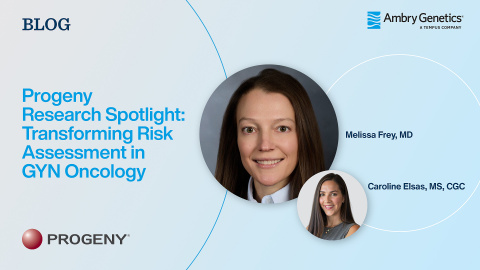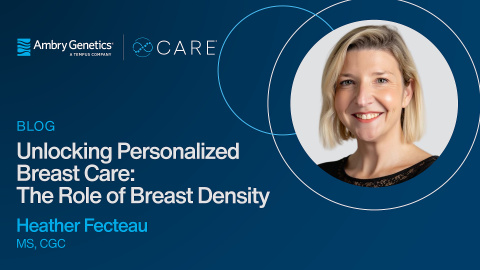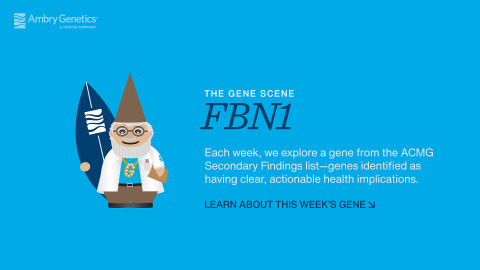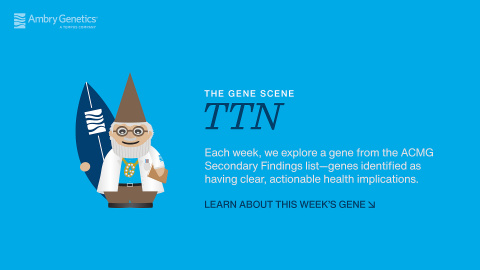- By Sarah Kreykes, MS, CGC
- Posted October 28, 2025
The Gene Scene: DSP
Welcome to the Gene Scene! Each week, we will explore a gene from the ACMG Secondary Findings list—genes identified by the American College of Medical Genetics and Genomics as having clear, actionable health implications.These genes are included because they’re linked to serious but preventable or manageable conditions when identified early.…
- By Caroline Elsas, MS, CGC
- Posted October 22, 2025
Progeny Research Spotlight: Uncovering Breast Cancer Risk in the GYN Oncology Clinic
Dr. Melissa Frey, a gynecologic oncologist, cancer geneticist, and researcher based in New York City—is redefining what gynecologic (GYN) cancer survivorship can look like. In our last blog featuring Dr. Frey’s research, we explored how her clinic transformed family history collection and risk assessment using Progeny. At first, Dr. Frey…
- By Nicole Teed
- Posted October 21, 2025
Finding New Hope: Dr. Goh's Journey from Camp Counselor to Doctor
Dr. Suzanne Goh, MD, BCBA, is a board-certified pediatric behavioral neurologist, behavioral analyst, neuroscience researcher, and author. She has dedicated her career to researching and developing therapies for neurological conditions that impact childhood brain development. Specializing in the treatment of autism, she is the founder of Cortica,…
- By Sarah Campian, MS, CGC
- Posted October 21, 2025
The Gene Scene: MSH2
Welcome to the Gene Scene! Each week, we will explore a gene from the ACMG Secondary Findings list—genes identified by the American College of Medical Genetics and Genomics as having clear, actionable health implications. These genes are included because they’re linked to serious but preventable or manageable conditions when identified…
- By Kimia Sanati, MS, CGC
- Posted October 14, 2025
The Gene Scene: CDKN2A
Welcome to the Gene Scene! Each week, we will explore a gene from the ACMG Secondary Findings list—genes identified by the American College of Medical Genetics and Genomics as having clear, actionable health implications.* These genes are included because they’re linked to serious but preventable or manageable conditions when identified…
- By Athena Puski, MS, CGC
- Posted October 7, 2025
The Gene Scene: LDLR
Welcome to the Gene Scene! Each week, we will explore a gene from the ACMG Secondary Findings list—genes identified by the American College of Medical Genetics and Genomics as having clear, actionable health implications. These genes are included because they’re linked to serious but preventable or manageable conditions when identified…
- By Caroline Elsas, MS, CGC
- Posted September 30, 2025
Progeny Research Spotlight: Transforming Risk Assessment in GYN Oncology
Bridging the Gap Between Treatment and Prevention At the intersection of cancer treatment and prevention, Dr. Melissa Frey—a gynecologic oncologist, cancer geneticist, and researcher based in New York City—has long recognized the critical importance of early cancer risk assessment. Dr. Frey identified a persistent challenge: traditional family…
- By Heather Fecteau, MS, CGC
- Posted September 24, 2025
Unlocking Personalized Breast Care: The Role of Breast Density
Since September 10, 2024, every mammogram facility in the U.S. is required to provide patients with a clear summary of their breast density—bringing awareness of this important factor front and center.1 While breast density significantly influences risk, it’s only one piece of a larger puzzle. To improve early detection and deliver truly…
- By Margo Gallegos, MS, LCGC
- Posted September 23, 2025
The Gene Scene: FBN1
Welcome to the Gene Scene! Each week, we will explore a gene from the ACMG Secondary Findings list—genes identified by the American College of Medical Genetics and Genomics as having clear, actionable health implications. These genes are included because they’re linked to serious but preventable or manageable conditions when identified…
- By Charlie King, MGC, CGC
- Posted September 16, 2025
The Gene Scene: TTN
Welcome to the Gene Scene! Each week, we will explore a gene from the ACMG Secondary Findings list—genes identified by the American College of Medical Genetics and Genomics as having clear, actionable health implications. These genes are included because they’re linked to serious but preventable or manageable conditions when identified…
